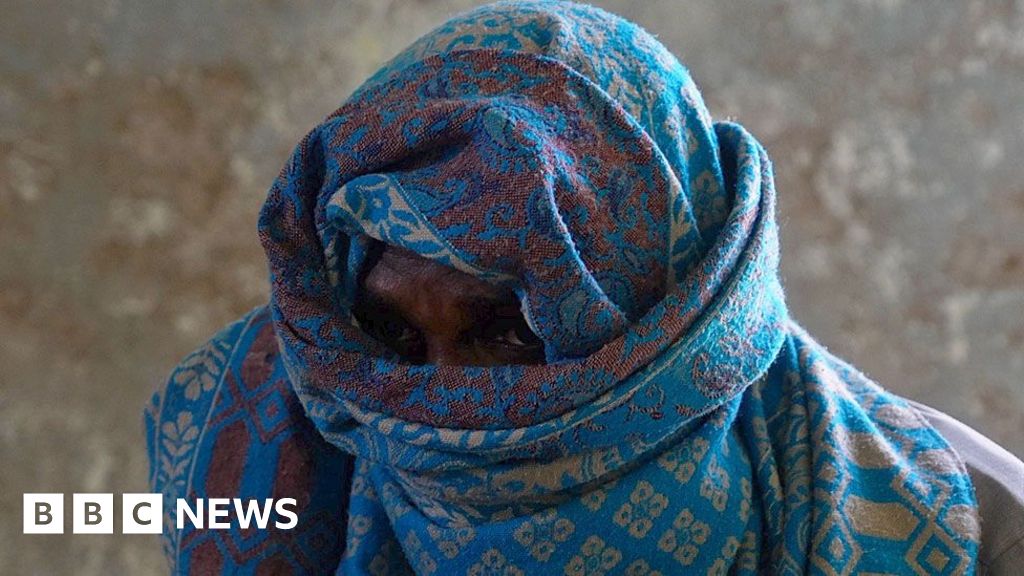The last five days have been hellish for Nigeria and its economy amid hunger protests.
This is as security red alerts spread to states, especially the North West of Nigeria.
Police and government authorities have reported the spread of property destruction, and shop looting in Kaduna, Plateau, and Bauchi as hoodlums hijacked the protests to wreak havoc.
This is also as rioters were arrested in Abuja and some other parts of the North with Russian flags.
A similar incident happened in Kano State, and the police said they have arrested the tailor responsible for the mass production of the flag.
The Russian Embassy in Nigeria has denied involvement in the display of its flag by protesters in Nigeria.
While the motive remains unclear, the Chief of Defence Staff, General Christopher Musa said displaying Russian flags in Nigeria was treasonable, and vowed to crack down on culprits.
The continued escalation of violence on Day 5 of protests, tagged #endbadgovernance, had resulted in Bauchi, Kaduna, and Plateau states recently announcing 24-hour curfews.
Earlier, Borno, Kano, Katsina, Jigawa, and Zamfara states declared 24-hour curfew in affected areas in order to contain looming anarchy.
Curfew declarations in states have further worsened the woes of the nation’s economy.
With the economy already declining, the declaration of curfew in states pushes the country’s economy to near collapse.
Association of Small Business Owners of Nigeria, ASBON, said an estimated N600 billion has been lost in the last five days.
The Centre for the Private of Private Centre had earlier said the country risks losing N400 billion daily to the protests.
The continued reports of violent rioting and the dissemination of fear in the generality of Nigeria leaves more than expected in the minds of investors.
Outside the loss of lives and looting of shops and properties, investors at the Nigeria Exchange Limited lost N92 billion at the end of the trading session on Monday.
The same goes for Nigeria Eurobond. There was a massive sell-off at the dollar-dominated bond amid the protests and uncertainties.
This comes despite a call by President Bola Ahmed Tinubu in his Sunday broadcast for the protests’ suspension to dialogue with the government.
Skeletal business in Abuja
Major businesses opened for transactions, but patronage was low on Monday in Abuja.
Our correspondent, who went around Wuse Market, gathered that there were skeletal business activities.
“We are open for business today as we did on Saturday. There is low patronage. I think people are still scared of coming out due to the protests. I hope things will be better in the coming days, “a businessman, Ifeanyi Okoro at Wuse Market, told DAILY POST.
It was the same situation in Banex Plaza, Dutse Market, and Utako Market.
Also, banks opened in the nation’s capital but had skeletal operations.
Long fuel queues fester in Abuja, Niger, Nasarawa
Most filling stations are not dispensing Premium Motor Spirit in Abuja, Nasarawa, and Niger States. Nigerian National Petroleum Company Limited, NNPCL, retail outlets along Kubwa Expressway were dispensing the product but with long queues.
Earlier, DAILY POST reported that the Independent Petroleum Marketers Association of Nigeria had blamed the current fuel queues on the ongoing protests.
The National Public Relations Officer of IPMAN, Chinedu Ukadike, said that the disruption of the movement of trucks, especially on Thursday and Friday, was responsible for the fuel supply glitch.
Government promises should be felt in food price cut – Idakolo
Financial Analyst and the Chief Executive Officer of SD & D Capital Management, Gbolade Idakolo in an interview with DAILY POST on Monday said the federal and the state governments should create a forum to address protesters and their demands.
He noted that the government needed to shift grounds and should be seen to be doing so in reality.
According to him, the state government had not lived up to expectations in alleviating the suffering of its citizens despite huge allocations in the past year.
Idakolo stressed that whatever the government promised to be doing should be felt by the people in the reduction of food prices, not just heard.
“The federal government and states should create a forum to address the protesters.
“The national broadcast of the president is not enough as the demands are not tackled with the reality on the ground. The government needs to shift grounds or should be seen to be doing so.
“The states have seriously failed to alleviate the suffering of their people despite the huge allocations they have been receiving for over a year now and instead hide behind the federal government and pass the bulk.
“A lot of states in Nigeria are not loyal to their citizens, so the outburst and protest is understandable and expected albeit for the destructive dimensions by fifth columnists.
“I think the promises of the government should be felt and not heard as it is presently.
“Most of the promises of the government have not changed food prices, transportation costs, etc.
“The people need the government to take action in concrete terms, and the first step is dialogue with the agitators. The government should also live up to its responsibilities of protecting lives and properties (the lives of the protesters inclusive).
“The promises have taken too long to be actualized, hence the reason for this protest.
“If the government claims they have heard the agitations loud and clear, then tangible, reliable, and quantitative measures need to be taken to assuage the concerns of the people,” he told DAILY POST.
Suspend protests to halt the collapse of Nigeria’s economy – CPPE tells Nigerians
The Director of the Centre for the Promotion of Private Enterprise, CPPE, Muda Yusuf, said the earlier the protests are called off, the better for Nigeria’s economy.
According to him, a prolonged demonstration will lead to more degeneration of the country’s economy because it would continue to slow the momentum of economic activities.
“When you have this kind of situation- uncertainty, apprehension on safety, it affects businesses adversely.
“In the states with a curfew, no economic activity will happen there. We are talking about Nigeria’s economy, which is 90 percent dependent on the private sector.
“Many of them are small businesses that depend on daily cash flow for survival. The riot has practically crippled those states.
“Even the states not expressing curfew, confidence is yet to pick up for businesses. These things are slowing down the momentum of economic activities.
“The earlier the protest is called off, the better; the longer the risk for the economy to degenerate.
“The media must help the government achieve this by not creating panic, or fear by not over-amplifying reportage of incidents, “he said.
On his part, Dr Uju Ogunbunka, the President of the Bank Customers’ Association of Nigeria, said the private establishments and the people were worst hit by the protests.
According to him, in most cases, business and core economic activities have stagnated in the past few days owing to the protests.
“The economy will continue to stagnate with the protests in my view.
“With the curfew in some states, this will impact the economic activities of the affected states and the nation at large”, he told DAILY POST.
















 English (US) ·
English (US) ·